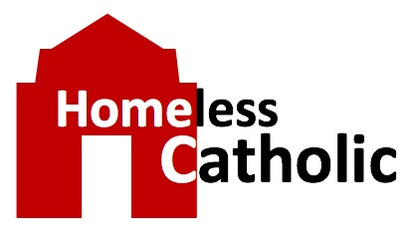Blaming gets us nowhere
White/black/brown/yellow/orange people of all sorts carry some form of caustic and difficult to eradicate disease. Everybody is to blame. The same with rich/poor/middle-class folks and male/female/LGBTQ. Blame, blame, and more blame. The promise of holiness for folks according to just about any identity category has been dented and damaged so badly that in our lifetimes we will not fix either our nation’s problems or some specific sinful identity group.
We aren’t supposed to.
Image by Tumisu
God's got this
By John Pearring
https://bible.usccb.org/bible/readings/030621.cfm
Micah 7:14-15, 18-20
Luke15:1-3, 11-32
The prophet Micah is a man for our time. In current political life, no matter on which side of the divide you stand, the prevailing sadness of almost everyone of faithful hearts stems from evil’s constant success. We can’t shake the burden of an insurmountable corruption in society. Many of us are looking for someone to blame.
Micah reminds us that our sadness probably comes from not understanding where in the rampant corruption around us how much we each of us are to blame. In truth, corruption finds a path through those who aren’t aware they can resist it. Not that Micah could personally solve that malaise in his own time. That's essentially the point. First, it’s his grief and sorrow over the decline of the Israeli population that resemble our disappointment today. Next, it's God's character and power that is happening just like in Micah's day. Blame doesn't have anything to do with it. We've got to start with ourselves and follow God's lead.
As one biblical commentator put it, “What he saw all around him was such a terrible shame! A nation with such great possibilities had descended to this.” The book of Micah reads like this over and over. He pinpoints the blame pretty much everywhere. It's a good framing. Nobody is free from fault.
This is our similar dilemma. Whether you side with conservatives or progressives, with leftists ideals or right leaning principles, or even just with Democrats or Republicans, the common lament for our nation comes down to the same thing. The pursuit of evil brings no joy, and we’d like it to stop. So what should we do to stop it? The answer is surprisingly simple. Get out of God's way. Then, help him when he asks for our help.
What is God doing in the midst of sin and corruption? That’s Micah’s prophetic message to us. “You will cast into the depths of the sea all our sins …” This is what we must focus upon. Yes, these are sins, and ours are included. God is at work.
Instead of recognizing God at a work we mostly just see the muck and mire and look for blame. Most of us judge our opposites, those who oppose us, as the source of some specific evil. We have the evidence. We have both video and audio to back us up. Rather than turn to God, we turn into blame enforcers.
White/black/brown/yellow/orange people of all sorts carry some form of caustic and difficult to eradicate disease. Everybody is to blame. The same with rich/poor/middle-class folks and male/female/LGBTQ. Blame, blame, and more blame. The promise of holiness for folks according to just about any identity category has been dented and damaged so badly that in our lifetimes we will not fix either our nation’s problems or some specific sinful identity group. We aren’t supposed to.
“Alas, we are doomed!” many of us yell into the air at the parking lot of our most common grocery store. Some stare at us. Some nod.
Micah’s book, however, doesn’t end with lament. Don’t get me wrong. He’s wholly immersed in lament. His descriptions of the sinful nation of Israel smears everyone with a poopy crust of disgust. Nobody’s shooting rainbows out of their wonderful selves.
I don’t think we’re really that far gone. Micah’s point ends up being how good God is, not how good or bad we are. It's an extremely healthy position to take. From an individual perspective we see all kinds of good. From a whole population point-of-view things look just plain terrible. From God's perspective, we can see hope.
If we check off Micah’s list of sorrows we’re not any better than the sinning Israelites. In fact, we might be worse. Consider that our nation is an evenly divided split of different ideals. We have completely opposing “isms” and values regarding governance, finance, politics, and religion. Look at the changes in word definitions. We now define well-used terms in very different ways. And worse, we have vastly differing perspectives on our historical record. We could get very depressed thinking we’re all pretty terrible people in the eyes of a large swath of our fellow citizens.
One could even go so far as to say, and I do, that the devil’s goal to divide and conquer is nothing short of a total success. Kudos to the big pill of awfulness. We’ve swallowed his bait, and we’re blue/red poisoned beyond our wildest imaginations. Has he won? Not by a long shot.
Micah doesn’t turn to the evil one. He doesn’t turn to the world’s leaders. He doesn’t turn to his friends. He turns to God.
We’re not all wrong and all awful, of course. We’re assuredly wrong about virtually everything if you stacked up all our wrongness into a list. None of us, though, check off every single one of the wacky wrongness items. Some of us have way less than one quarter of the stuff wrong. Very few of us even get to one half. How bad or good we are is still not the point.
The point is how good God is. So, when Micah tells us that God’s probably got this in hand, he’s telling us the important truth.
Who is there like you, the God who removes guilt
and pardons sin for the remnant of his inheritance;
Who does not persist in anger forever,
but delights rather in clemency,
And will again have compassion on us,
treading underfoot our guilt?
(Micah 7:18)
Sure, we’re guilty. But we have a forgiving, merciful, good God.
Today’s psalm addresses what Micah calls for us to do.
He will not always chide,
nor does he keep his wrath forever.
Not according to our sins does he deal with us,
nor does he requite us according to our crimes.
(Psalm 103:9-10)
No, because, "The Lord is kind and merciful."

